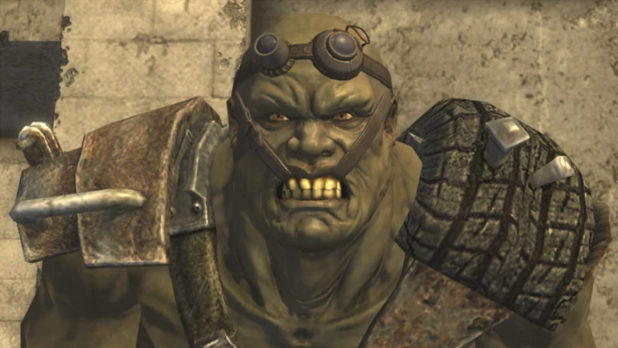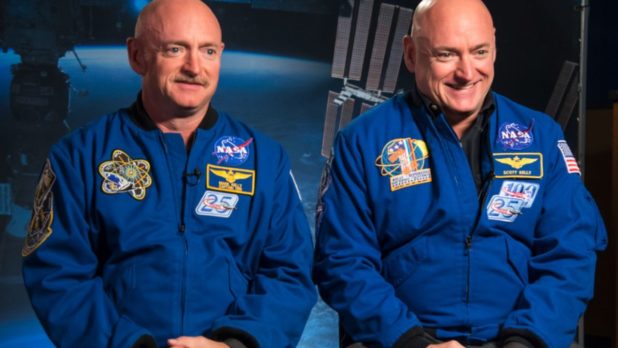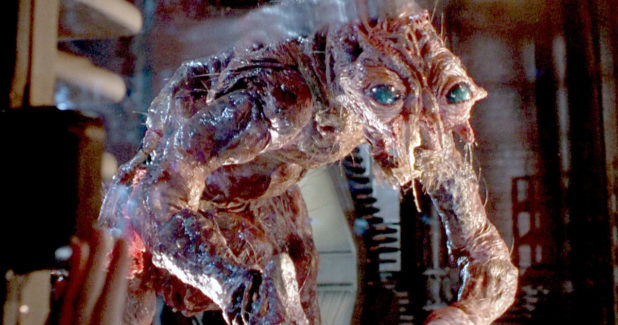Adrian Sol
Daily Stormer
March 11, 2017
I can see the future, and it’s full of mutants.
Okay, so we always had this program in mind of breeding people into some kind of super-race that’ll don power armor and conquer the universe in a grand inter-galactic crusade.
But as it turns out, we have preliminary indication that simply living in space for a while is enough to cause large-scale mutations in human DNA.
So this millennia-long program could be shortened significantly.
If all this pans out, your grand-kids could be the first wave of 8 feet-tall space crusaders.
I4U:
NASA’s Scott Kelly who spent a year in space now has a different DNA from his twin brother. In a recent interview, the 54-year old former astronaut reacted to the changes he has gone through during his stay in extreme conditions of space.
Which is the mutant? Presumably the one with the mustache, which was grown as a result of his upgraded genetics.
“I did read in the newspaper the other day that 7 percent of my DNA had changed permanently. And I’m reading that, I’m like, ‘Huh, well that’s weird.’” Kelly said.
Seven percent is a very significant change. After all, they tell us we have 98% of our genes in common with chimps or whatever.
Scott Kelly returned to Earth in March 2016 after spending nearly one year in International Space Station. In the meantime, his identical twin brother Mark remained on Earth. NASA researchers found that to be a great opportunity for understanding the effects of space environment on human body and conducted a detailed genetic analysis of Scott Kelly and his twin brother Mark. They collected the blood and other biological samples of both men before and after the Scott Kelly’s one year long space mission.
The preliminary results for the “Twin Study” showed that space travel does more than making us weightless. Researchers looked at various biomarkers from chromosomes to the microbiomes in their guts and noticed a number of differences between the two. They concluded that spaceflight results in oxygen deprivation stress, increased inflammation, and dramatic nutrient shifts that affect gene expression.
Okay, sure. But are we talking about the “The Fly” type scenario, here? Or more like a super-mutant situation?
Later study confirmed that 93% of Scott’s genes returned to normal after landing. However, the remaining 7% is possibly irreversible and points to longer term changes in genes associated with immune system, DNA repair, bone formation networks, hypoxia, and hypercapnia.
Okay, so it seems his DNA wasn’t rewritten, but rather that his existing genes were no longer being expressed in the same way. But this was only after a short time. Who knows what a long-term exposure to space will do.
All we can hope for is that these won’t be the gay kind of mutations that give you cancer, but the awesome kind that allows you to shoot lasers out of your eyes, levitate or beat Dark Souls without getting hit once.
Okay, that last one was maybe a bit of a stretch.




